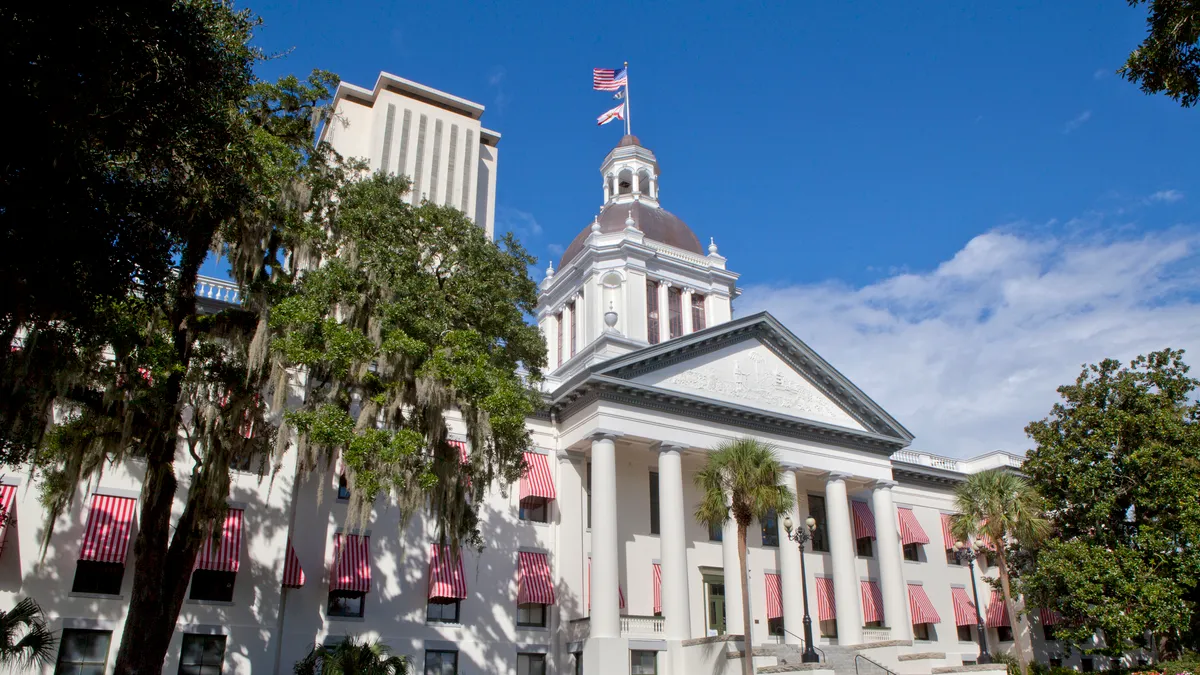Last month, the 11th U.S. Circuit Court of Appeals upheld a lower court’s ruling that Florida’s HB7 law, also called the “anti-woke” law, violated the First Amendment.
“This isn’t a final ruling, but as of now, the law cannot be enforced,” said Emily Chase-Sosnoff, an attorney at FordHarrison in Tampa, Fla.
Here’s what HR managers need to know about this recent decision, the possible future for HB7, and how it affects corporate DEI training efforts.
The path of HB7
HB7, which the Florida legislature initially passed in April 2022, sought to bar employer-mandated diversity training endorsing the belief that “specified concepts [constitute] discrimination based on race, color, sex, or national origin” and violations would be seen as civil rights violations.
It wasn’t enforced for long. In August 2022, a federal district court blocked the law’s workplace restrictions. This March ruling continued that blockage.
“The State of Florida seeks to bar employers from holding mandatory meetings for their employees if those meetings endorse viewpoints the state finds offensive,” Judge Britt C. Grant on the 11th Circuit panel wrote. “But meetings on those same topics are allowed if speakers endorse viewpoints the state agrees with, or at least does not object to. This law, as Florida concedes, draws its distinctions based on viewpoint — the most pernicious of dividing lines under the First Amendment.”
It was a unanimous decision among the three judges on the 11th Circuit.
“Barring employers from engaging in speech that powerful politicians don’t like is a move straight out of the authoritarian playbook.”

Shalini Goel Agarwal
Attorney, Protect Democracy
A group of plaintiffs, including Honeyfund, an LGBTQ-friendly honeymoon registry company, sued, claiming that the law violated a company’s free speech. They also alleged that the law was unconstitutionally vague under the Fourteenth Amendment.
“Speech codes have no place in American society, and elected officials have no business censoring the speech of business owners simply because they don’t agree with what’s being expressed,” Shalini Goel Agarwal, the Protect Democracy attorney who represented those challenging the law, said. “Barring employers from engaging in speech that powerful politicians don’t like is a move straight out of the authoritarian playbook.”
DEI training in Florida: The current outlook
The recent ruling means business as usual for companies in Florida and multi-state companies with locations in Florida, the FordHarrison attorney explained. “You can give your normal diversity training in Florida right now with no restrictions,” she said.
Still, companies should keep track of what happens with the law, and other proposed laws affecting education and employment. “Just keep an eye out on all these laws, because a lot of them have been challenged in court, and the landscape changes so quickly…especially with these hot-button issues,” she said.
And while HB7 had a “chilling effect” on diversity training when it was first enacted, that’s not warranted now. “Employers are at-risk for not doing diversity,” Chase-Sosnoff added, underscoring that not fostering an inclusive environment could expose companies to legal claims.
The fight over HB7 isn’t over
The March ruling didn’t strike down the law entirely. Instead, it continued to halt enforcement pending appeal in the Northern District of Florida. According to a Bloomberg report, Jeremy Redfern, DeSantis press secretary, said that the state is reviewing its options.
“We disagree with the Court’s opinion that employers can require employees to be taught — as a condition of employment — that one race is morally superior to another race,” the governor’s office said in a press statement. “The First Amendment protects no such thing, and the State of Florida should have every right to protect Floridians from racially hostile workplaces.”
Chase-Sosnoff said there’s no way to know when a final ruling on the law will happen, as courts are unpredictable. Her best guess is “in the next year, but it’s already been almost two years” since the law was initially blocked.











